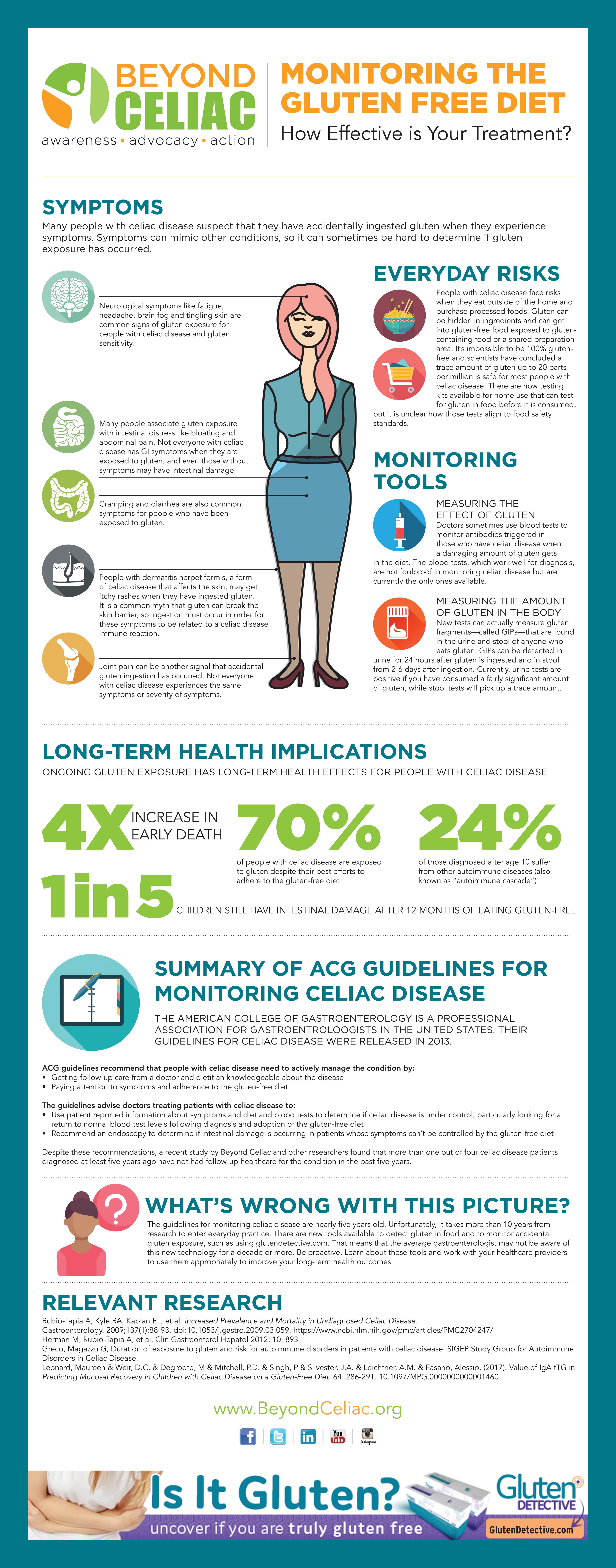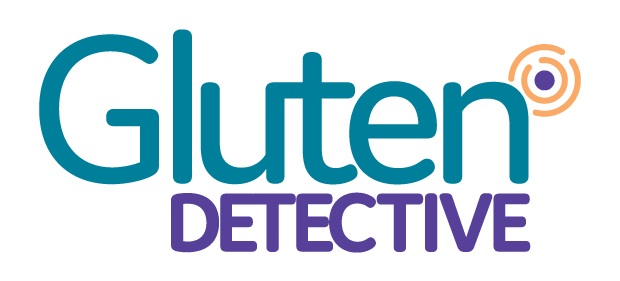Celiac Disease Management & Monitoring
Currently, the only treatment for celiac disease is a strict, lifelong gluten-free diet. Eating gluten, even in very small amounts, can damage the intestine. Learn more about the gluten-free diet here.
Celiac Disease Management
The American Gastroenterological Association and the American College of Gastroenterology recommend regular healthcare follow-up with a physician and dietitian for those with celiac disease. This care is seen as critical in providing patients with accurate information about the gluten-free diet, which is currently the only treatment for celiac disease, and improving adherence to it.
Managing Celiac Disease Involves:
- A lifelong adherence to the gluten-free diet
- A team approach with skilled physicians and dietitian
- Education about celiac disease and the gluten-free diet
- Identifying credible support and advocacy groups
- Potentially discussing the need for a psychologist who can help with acceptance and coping
- Educating relatives, including asking for their support and for them to be tested
- Regular follow-up care and testing
Pediatric celiac disease management should also focus on monitoring the child’s growth, discussing the need for a 504 plan at the child’s school, and age-specific support groups and/or summer camps.
Celiac disease damages the villi, which are finger-like projections in the small intestine. Villi are responsible for absorbing nutrients from food. Because of this, it is highly likely that people with celiac disease will be deficient in essential vitamins and nutrients when diagnosed. Laboratory tests should be done within three to six months following a diagnosis and annually for the rest of your life.
Laboratory Tests for Celiac Disease Management After Diagnosis
Regular monitoring with blood tests can help to answer the following questions:
- Is the small intestine healing?
- Am I being followed and screened for common nutritional deficiencies and associated diseases?
- Am I getting better?
- Am I being exposed to gluten?
Laboratory tests to include in celiac disease management include:
- Celiac disease antibodies (IgA-tTG)
- Nutritional anemia profile (hemoglobin, hematocrit, folate, ferritin, vitamin B12)
- Vitamin profile (thiamin, vitamin B6, 25-hydroxy vitamin D)
- Mineral profile (copper, zinc)
- Lipid profile
- Electrolyte and renal profile
- Complete blood count (CBC)
- Thyroid stimulating hormone (TSH)
Adults with celiac disease should have a bone mineral density scan within the first year after diagnosis.
The specific tests you receive will vary depending on your situation and your doctor’s advice. Please use these tests as a guide to your lifelong management of celiac disease.
While blood tests are extremely helpful, the results don’t always detect damage to the intestine research has shown. Visiting a registered dietitian knowledgeable of celiac disease and the gluten-free diet is considered the “gold standard” for understanding how to know if you are accidentally being exposed to gluten (even if symptoms are not present).
Ongoing Monitoring
Healthcare follow-up can include blood tests that measure celiac disease antibodies and are the best available tool to indicate ongoing intestinal damage. When needed a follow-up biopsy might also be done.
Additionally, there are now at-home urine and stool tests which can be used byceliac disease patients and others who follow the gluten-free diet to test whether they’ve consumed gluten.
Learn more about monitoring with at-home urine and stool testing here.
Monitoring the Gluten-Free Diet Infographic
Get the PDF version of this poster.

Beyond Celiac thanks Gluten Detective for their support. 


